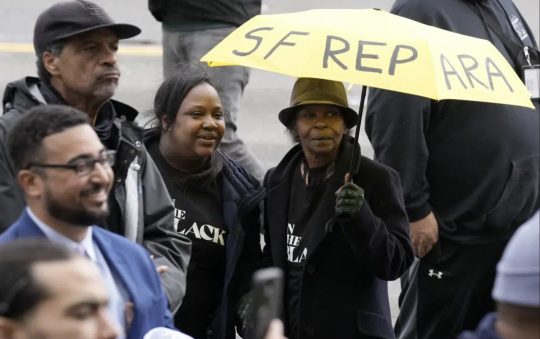
Recent and stunning disclosures of racially-offensive writings by a high-ranking official at the Consumer Financial Protection Bureau (CFPB) has unleashed an escalating barrage of criticisms, including calls for the official to be fired and more probing questions regarding the agency’s commitment to fair lending.
Since a September 28 Washington Post article first reported how Eric Blankenstein, CFPB’s Policy Director for Supervision, Enforcement and Fair Lending, used a pen name in blogs dating as far back as 2004, a spate of fury has been unleashed. Disguising his authorship, Blankenstein claimed that the use of the N-word was not racist, and further alleged that most hate crimes were hoaxes.
A subsequent New York Times article alleged that people who perpetuated the Obama birther conspiracy are not racist either, and noted that as late as 2016, Blankenstein’s personal Twitter account posted racially charged comments.
Keep in mind that Blankenstein was hand-picked by CFPB head Mick Mulvaney. Patrice A. Ficklin, a CFPB career staff member and Director of its Office of Fair Lending and Equal Opportunity reports to Blankenstein and is quoted in the Post article.
Ficklin said, “And while he has been collegial, thoughtful and meticulous, I have had experiences that have raised concerns that are now quite alarming in light of the content of his blog posts — experiences that call into question Eric’s ability and intent to carry out his and his Acting Director’s repeated yet unsubstantiated commitment to a continued strong fair lending program under governing legal precedent.”
By October 1, Anthony Reardon, National President of the National Treasury Employees Union, advised CFPB of its dissatisfaction with the Blankenstein blogs.
“There should be zero tolerance for comments that Blankenstein has admitted authoring and nothing less than swift and decisive action is called for,” said Reardon. “That someone with a history of racially derogatory and offensive comments has a leadership position at CFPB reflects poorly on CFPB management and your commitment to fulfilling the mandate of the agency to ensure that discriminatory and predatory lending practices are stopped.”
Two days later, on October 3, the Center for Responsible Lending (CRL) publicly called for Blankenstein to be fired.
“Mr. Blankenstein must be removed from his post and this must be combined with a demonstrable commitment by CFPB head Mick Mulvaney to fair lending,” said Yana Miles, CRL’s Senior Legislative Counsel. “Thus far, the Mulvaney approach has been worse than inaction – it has been an appalling retreat from enforcing anti-discrimination laws…. The enduring legacy and present-day experience of financial discrimination is the key driver of the racial wealth gap. Vigorously addressing this is a legal and moral imperative.”
A second civil rights organization agreed with CRL’s call for Blankenstein’s termination.
“Eric Blankenstein’s racist and sexist remarks show that he is not fit to lead the CFPB Office of Fair Lending,” said Vanita Gupta, president and CEO of The Leadership Conference on Civil and Human Rights. “Our nation’s history of financial discrimination is the key factor in the growing racial wealth gap.”
“Entrusting Blankenstein given his history of racially derogatory remarks will undermine progress for fair lending efforts to close the gap,” continued Gupta. “If the CFPB is serious about eradicating discrimination, it must immediately remove Blankenstein, and must ensure that it is led by a person with a demonstrated commitment to civil rights enforcement. His writings make clear that Mr. Blankenstein is not that person.”
The same day, another pivotal development occurred. A letter signed by 13 U.S. Senators representing 11 states wrote Mulvaney, demanding answers to a series of questions no later than October 22. The questions span Mulvaney’s personal awareness of the writings, the guidelines and procedures used to fill the position, whether a Member of Congress, or an executive branch employee recommended his hiring, what action he intends to take as Acting Director and more.
In part, the Senators’ letter states, “We are deeply concerned that you have placed a person with a history of racist writing at a senior position within the Consumer Financial Protection Bureau…Mr. Blankenstein was not hired through the competitive service process like most CFPB employers; he is one of your hand-selected political appointees. Further, you have specifically tasked him with overseeing the CFPB’s fair lending supervision and enforcement work at a time when you have decided to restructure the Office of Fair Lending and Equal Opportunity.”
The letter was signed by Senators Richard Blumenthal (D-CT), Cory Booker (D-NJ), Sherrod Brown (D-OH), Maria Cantwell (D-Washington State), Kirsten Gillibrand (D-NY), Kamala Harris (D-CA), Edward Markey (D-MA), Catherine Cortez Masto (D-NV), Jack Reed (D-RI) Mark Warner (D-VA), Robert Menendez (D-NJ), Elizabeth Warren (D-MA), and Ron Wyden (D-OR).
Even before the Blankenstein scandal, Mulvaney’s actions and inactions at the CFPB have brought a series of concerns by civil rights and consumer advocates alike. Particularly noteworthy among their stated concerns under Mulvaney include:
- CFPB has yet to issue any violations of the Equal Credit Opportunity Act;
- The Bureau declared an intent to ignore the Disparate Impact standard, a long-standing legal test that holds the effects of discrimination, not the intent are legal violations;
- Personally praised the repeal of anti-discrimination auto lending guidance;
- Sided with payday lenders in their challenge of the Bureau’s payday rule promulgated under the previous director;
- Announced the Bureau’s fair lending office would be stripped of its supervisory and enforcement powers; and
- Relegated the development of regulation on fair lending for minority and women-owned businesses to a low-level concern.
It took decades of vigilant struggle for civil rights, fair lending, and consumer protection to be codified in federal laws. It is time to remind the CFPB and all federal agencies that they have a duty to uphold the nation’s fair lending laws – regardless of personal beliefs.







